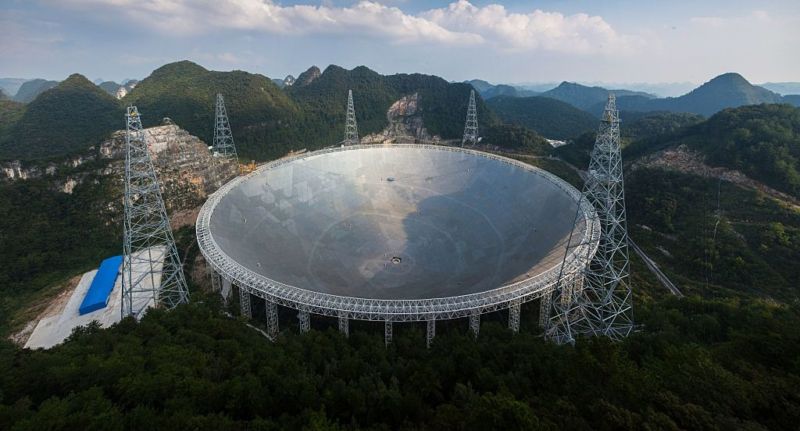China has built a staggeringly large instrument in the remote southern, mountainous region of the country called the Five hundred-meter Aperture Spherical Telescope, or FAST. The telescope measures nearly twice as large as the closest comparable facility in the world, the US-operated Arecibo radio telescope in Puerto Rico. Radio telescopes use a large, parabolic dish to collect radio waves from distant sources, such as pulsars and black holes?or even alien civilizations.
According to the South China Morning Post, the country is looking for a foreigner to run the observatory because no Chinese astronomer has the experience of running a facility of such size and complexity. The Chinese Academy of Sciences began advertising the position in western journals and job postings in May, but so far there have been no qualified applicants.
One reason is that the requirements are fairly strict: The candidate must have at least 20 years of previous experience in the field, and he or she must have taken a leading role in large-scale radio telescope project with extensive managerial experience. The candidate must also hold a professorship, or equally senior position, in a world-class research institute or university.







 Reply With Quote
Reply With Quote

Bookmarks